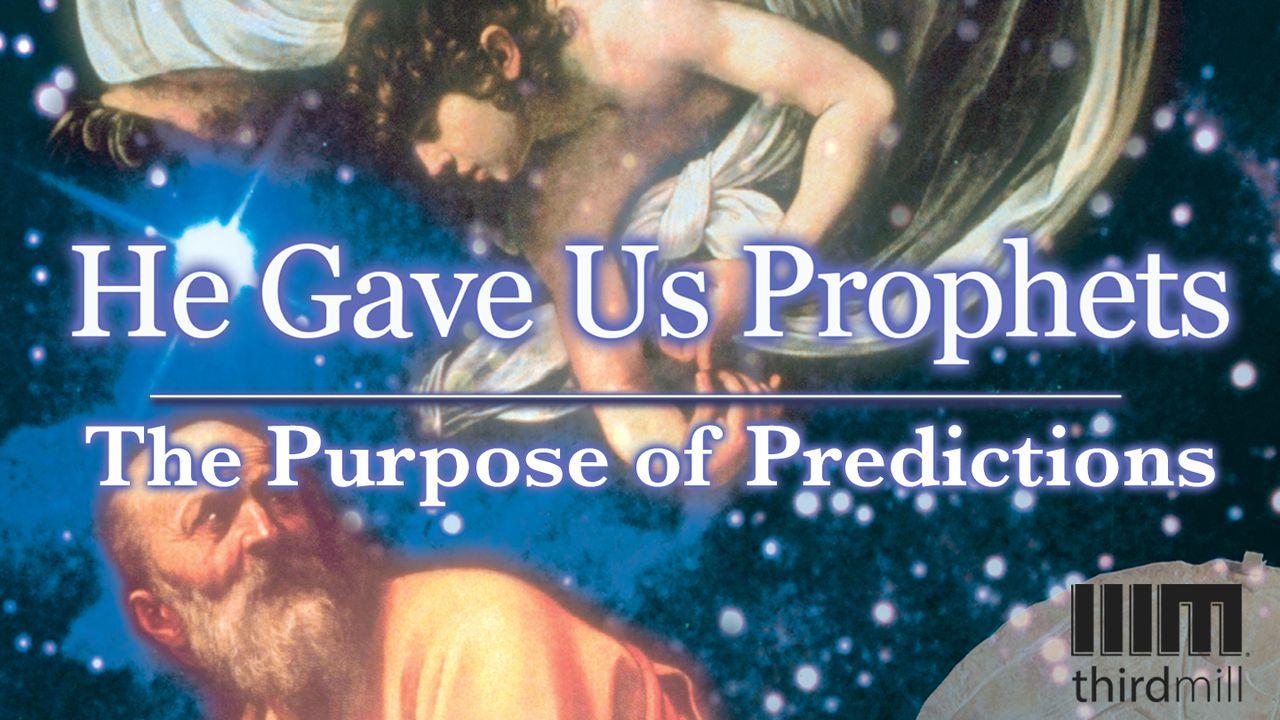He Gave Us Prophets: The Purpose of Predictions預覽

Example #4: Deuteronomy 18
Let’s look at a widespread misconception of the purpose of Old Testament predictions. If there’s one dominant view of the purpose of predictions in the Old Testament, it can be summed up in the word “prognostication.” As we know, when medical professionals speak of a prognosis, they’re telling us what they think the outcome of an illness or a condition may be in the future. In many ways, this is the way many Christians understand the prophets. They believe that prophets simply foretold the future; they gave foreknowledge of things to come. Now, there is an element of truth in this view. The prophets reveal that at any given time God was determined to go this way or that way. Yet we must always remember that intervening historical contingencies could have significant effects on the ways that prophecies were fulfilled.
One passage stands behind this popular preoccupation with prognostication, and that is Deuteronomy 18:20-22. In this passage, Moses declared a criterion by which Israel was to determine if a prophet was a true or false prophet. Verse 21 amounts to a question which Moses asked on the behalf of the Israelites:
You may say to yourselves, “How can we know when a message has not been spoken by the Lord?”
Verse 22 gives a response to that question:
If what a prophet proclaims in the name of the Lord does not take place or come true, that is a message the Lord has not spoken. That prophet has spoken presumptuously. Do not be afraid of him.
A widespread misunderstanding of this passage runs something like this: if a true prophet of the Lord says anything, then that thing must happen just as he said it. But to apply Moses’ test of a true prophet properly, we must not approach the words of prophets woodenly. We have to consider the intentions behind prophetic predictions. When prophets spoke, they did not always intend to give the impression that what they were predicting was absolutely certain. Their words revealed, sometimes explicitly and other times implicitly, that human reactions could influence the fulfillment of a prediction. So, when we apply Moses’ test of prophets, we always have to ask not just what did the prophet say explicitly, but also what implicit conditions apply to their predictions.
Moses and Israel knew that this was true of prophecy. They knew that only divine oaths secured the certainty of a future event. They also knew that when prophets spoke words of judgment, the prophets usually did not utterly condemn to judgment, but simply warned of judgment. They understood that unless prophets indicated a divine oath had taken place, they did not promise blessing, but offered blessing. In these cases, Moses’ tests would have to be qualified by the occurrence of significant intervening historical contingencies. In other words, so long as some significant human reaction did not affect the process, then Moses’ tests would apply easily. Otherwise, the possibility of God’s response would have to be factored in. Onlookers would have to ask the question, did significant intervening historical contingencies occur? If they did, then Moses’ tests would have to be adjusted appropriately.
關於此計劃

This reading plan explores four topics related to prophetic words about the future: God's sovereignty, human contingencies, degrees of certainty, and desired outcomes.
More




